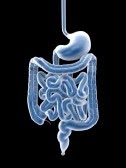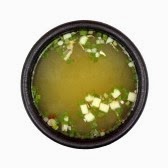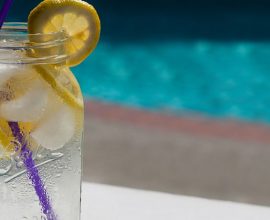
Feed your gut instincts!
Written by Ravinder Lilly,Writer and Dietitian, USANA Australia New Zealand
Ever felt butterflies in your tummy when you’re a bit on edge? Do you believe in gut feeling? Or gut instincts? Well, there’s a reason for all of these – the gut-brain connection! It turns out that there are as many neurones (nerve cells) in your gut as in your spinal cord. You already know keeping your gut healthy is vital for good digestive health. But could it also be important for emotional health, too?
Let’s talk gut
 |
| The digestive system |
Your digestive system is a very long tube that’s adapted in different areas. Each are contributes to the process of digestion which ends in the large colon where all the good stuff has been taken our together with most of the water leaving just waste matter ready to leave your body. Digestion is the breakdown of foods and drinks so that the nutrients can be absorbed and thus nourish your body cells.
As well as the tissue and organs associated with digestion, millions of beneficial bacteria or probiotics (which literally means ‘for life’ in Greek!) live in your intestine and they contribute to digestion. A baby has a sterile gut before birth but beneficial bacteria start to colonise the intestines during birth and as a baby goes on to eat.
In fact, your body carries trillions of microorganisms on the body and in it – in the mouth, the reproductive organs and most of all in the intestines. In fact, there are more bacteria in your large intestine than there are humans on earth – that’s a lot of bacteria!
Two brains?
 |
| Communication is a two-way thing! |
Your second brain (your gut) communicates with the one in your head. Your second brain is a network of nerves inside the tissue that lines the wall of your gut. Its main job is to regulate the many and complex functions that take place along it. Recently scientists revealed the role of the bacteria that live mostly in the inner walls of your colon (large intestine) play. There are thousands of varieties of probiotics, but the most important kinds are thought to be the Lactobacillus and Bifidobacterium kinds.
As well as breaking down otherwise indigestible fibre, making vitamins B and K and helping to keep the disease-causing bacteria at bay, probiotics produce chemical signals which communicate with your brain. The gut has been described as a second brain – it contains up to 100 million neurons – as many as the spinal cord says Michael Gershon, professor of anatomy and cell biology at Columbia University, New York.
Getting back to gut instincts
 |
| E coli causes serious illnesses |
You’ve probably instinctively know that stress can affect your gut and now, this has been proven. A little stress is good – it helps you get up in the morning and fuels motivation. But too much stress for too long triggers chemical responses in your gut. Stress chemicals can kill probiotics and may give pathogens a better chance to take hold. For example, the stress hormone norepinephrine can reduce probiotics allowing levels of Escherichia coli to rise. This bacterium is often singled out as a food-borne baddie causing serous food poisoning and other infections. Then there’s Campylobacter jejuni, a pathogen that’s often linked with infectious diarrhoea. When you’re stressed out, this bacterial baddie has the opportunity to flourish and trigger disease.
More research is revealing that just as the brain influences gut bacteria, bacteria can also influence the brain. In this way, bacteria may even affect your mood and emotions. Some studies have shown raising Bifidobacteria increases the levels of tryptophan in the blood. Tryptophan is a precursor of the feel-good neurotransmitters serotonin. And serotonin is released when you have had an enjoyable meal and feel calm and rested.
Your brain holds two to three per cent of your body’s serotonin store; a massive 90 to 95 per cent of your serotonin lies in the gut. Some experts suggest that with such a strong gut-emotion connection, troubles with your gut may also be linked with negative emotions and even poor sleep.
Keep your gut happy, keep you happy?
 |
| All good! |
So could moderating your gut bacteria help to boost mood? The answer is that we don’t know yet for sure. But one study from France suggests it may well do. Following positive results in animal studies, the same researchers gave healthy but moderately anxious people a daily probiotic supplement that contained Lactobacillus helveticus and Bifidobacterium longum.
After 30 days, the volunteers who had taken probiotics showed decreases in anger and depression and better problem-solving ability. Following this, another analysis showed similar mood-boosting effects in people who were less stressed to begin with.
But the exact mechanism of action isn’t yet known. It may be that the gut-brain link means that if gut bacteria affect function in the brain, probiotics which aid digestive functions may cut stress and therefore boost mood. Others point to the anti-inflammatory action of probiotics which may affect the activity of areas of the brain associated with mood including anxiety. Or, it could be that probiotics produce neurotransmitters which then act directly or indirectly on the brain. Plus, the fact that probiotics affect glycaemic control could be the link as glucose intolerance has been associated with the development of depression.
So whether you believe probiotics have a specific effect or a regional one, there is one area of your body that probiotics have a proven beneficial action on. And that’s your gut.
Age old medicine
 |
| Delicious Miso! |
Humans have sought out probiotics for thousands of years – perhaps more. Foods such as cultured milk foods like miso, buttermilk and the Dutch cheese Gouda all contain probiotics. While banana, oats, onions, garlic, artichoke and asparagus contain prebiotics – parts of these foods enter the large intestine relatively unchanged. And here, it provides food for probiotics helping the colonies grow strong.
So what makes a good probiotic?
According to scientists at London’s Royal Free hospital, a good probiotic needs to:
1. Reach the gut without being killed off by strong stomach acids along the way
2. Be safe for human consumption
3. Have clinically proven health benefits demonstrated by scientific trials
4. Have their contents clearly defined
5. Be clearly labelled
6. Be shelf stable.
USANA’S Probiotic ticks all the boxes!
 |
| USANA’s Probiotic ticks all the boxes! |
USANA Probiotic uses patented strains Lactobacillus rhamnosus LGG® and Bifidobacterium BB-12® in a unique 50/50 mixture. These two strains of probiotic bacteria have been clinically proven to promote a natural balance of beneficial micro flora in the gut.
Tests have proven that the species survive through the acidic stomach environment and are able to reach the intestines and do their beneficial work in the intestine.
Verified to supply 12 billion Colony Forming Units (CFU) of viable bacteria – a level shown to be effective in clinical studies.
USANA’s Probiotic advanced delivery system guarantees the bacteria will remain effective for at least 18 months when stored at room temperature. Try some today!
USANA® Probiotic is dairy- and sugar-free.
The stick pack formulation provides a high effective dose with a much longer shelf life than most yogurt-type products out there. And, it’s great if you don’t consume cow’s milk products – use straight out of the packet or mix with any cold food or drink.
Regularly taking USANA Probiotic plus Fibergy® Plus (which acts as a prebiotic for your natural, beneficial bacteria to flourish) can help your digestive system work efficiently, and help line the wall of your gut to keep it healthy.
BB-12 is a registered trademark of Chr. Hansen
LGG is a registered trademark of Valio Ltd.




